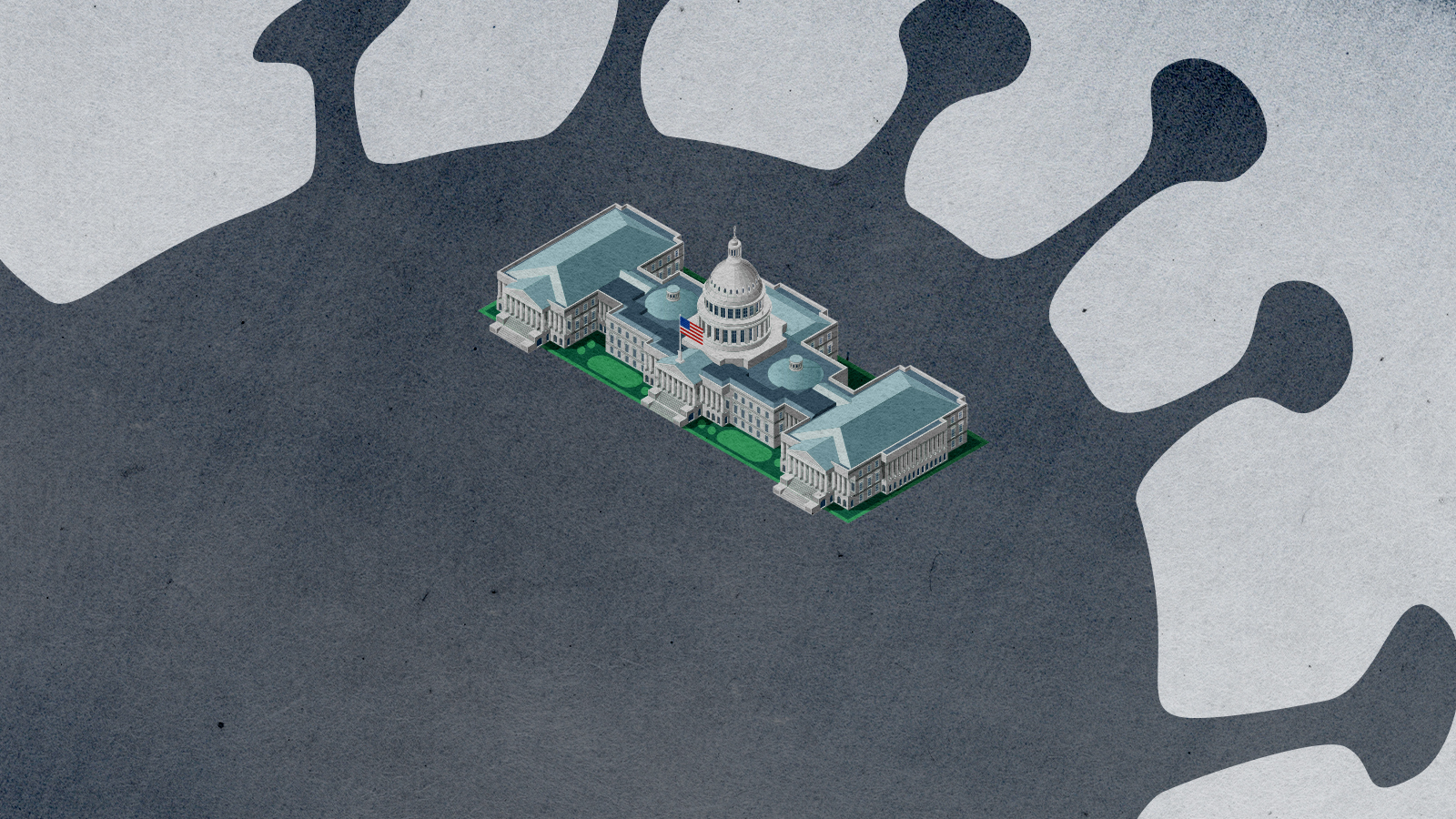A new COVID wave might be coming. Somehow we're not prepared.


A free daily email with the biggest news stories of the day – and the best features from TheWeek.com
You are now subscribed
Your newsletter sign-up was successful
Pandemic lulls aren't meant to last. There are new signs that the United States might — emphasis on might — be about to undergo another spike in COVID-19 cases. The CDC this week confirmed that wastewater sampling is showing increased amounts of virus in cities across the country, and a new Omicron subvariant is fueling a fresh wave of illness in Europe. Maybe we'll see a rise in hospitalizations and deaths again, maybe we won't, and it's pointless to panic. But this doesn't seem like a good moment to let our guard down too much.
Somehow, we're not prepared.
The White House and Congress are stuck in gridlock, haggling over a new COVID relief bill that would provide $15 billion in fresh funding for testing, stocks of antiviral drugs for those who need them, and free vaccines for those who want them. Without that money, officials warn those supplies and services will dry up very quickly.
The Week
Escape your echo chamber. Get the facts behind the news, plus analysis from multiple perspectives.

Sign up for The Week's Free Newsletters
From our morning news briefing to a weekly Good News Newsletter, get the best of The Week delivered directly to your inbox.
From our morning news briefing to a weekly Good News Newsletter, get the best of The Week delivered directly to your inbox.
"Time is not on our side," an administration official told ABC News. "We need the funding immediately."
So what's the holdup? Arguments over how to pay for the bill, and how long. The details of that debate are less interesting — and less important — than the clear need to be ready if and when the pandemic gets vicious again. Why can't the United States get this right, at long last? We've had enough practice by now, haven't we?
Maybe our attention is diverted: There's a war in Ukraine, after all, that has understandably sucked all the conversational oxygen out of the room. Maybe we've been comforted by the plunging hospitalizations and death rates following the quick-and-dirty Omicron wave. Or maybe we've simply decided that the virus is endemic, no longer worthy of emergency panic after two slogging years.
These are bad excuses. The virus isn't going away because of Russia's invasion — if anything, the war might serve as a breeding ground for COVID and other viruses. Coronavirus deaths are down, but they're still pretty high: 1,268 Americans died of the disease on Wednesday. (For comparison, the CDC says roughly 1,500 people have died of the flu this entire flu season.) And even if the virus has become endemic, that's no reason for federal government inaction. "An endemic threat isn't one that can be ignored but one that must be managed," The Atlantic's Ed Yong wrote Thursday.
A free daily email with the biggest news stories of the day – and the best features from TheWeek.com
The story of the coronavirus pandemic is one of American leaders getting caught with their pants down over and over again. The government wasn't ready for the original virus, prematurely celebrated right before the Delta variant struck, and was still slow to ramp up testing availability ahead of the Omicron spike that started late last year. It's a bipartisan problem. And it leaves us staring down the possibility of another COVID wave without our best defenses firmly in place.
Joel Mathis is a writer with 30 years of newspaper and online journalism experience. His work also regularly appears in National Geographic and The Kansas City Star. His awards include best online commentary at the Online News Association and (twice) at the City and Regional Magazine Association.
-
 Magazine printables - February 27, 2026
Magazine printables - February 27, 2026Puzzle and Quizzes Magazine printables - February 27, 2026
-
 ‘The forces he united still shape the Democratic Party’
‘The forces he united still shape the Democratic Party’Instant Opinion Opinion, comment and editorials of the day
-
 The year’s ‘it’ vegetable is a versatile, economical wonder
The year’s ‘it’ vegetable is a versatile, economical wonderthe week recommends How to think about thinking about cabbage
-
 A Nipah virus outbreak in India has brought back Covid-era surveillance
A Nipah virus outbreak in India has brought back Covid-era surveillanceUnder the radar The disease can spread through animals and humans
-
 Covid-19 mRNA vaccines could help fight cancer
Covid-19 mRNA vaccines could help fight cancerUnder the radar They boost the immune system
-
 The new Stratus Covid strain – and why it’s on the rise
The new Stratus Covid strain – and why it’s on the riseThe Explainer ‘No evidence’ new variant is more dangerous or that vaccines won’t work against it, say UK health experts
-
 RFK Jr. vaccine panel advises restricting MMRV shot
RFK Jr. vaccine panel advises restricting MMRV shotSpeed Read The committee voted to restrict access to a childhood vaccine against chickenpox
-
 RFK Jr. scraps Covid shots for pregnant women, kids
RFK Jr. scraps Covid shots for pregnant women, kidsSpeed Read The Health Secretary announced a policy change without informing CDC officials
-
 New FDA chiefs limit Covid-19 shots to elderly, sick
New FDA chiefs limit Covid-19 shots to elderly, sickspeed read The FDA set stricter approval standards for booster shots
-
 RFK Jr.: A new plan for sabotaging vaccines
RFK Jr.: A new plan for sabotaging vaccinesFeature The Health Secretary announced changes to vaccine testing and asks Americans to 'do your own research'
-
 Five years on: How Covid changed everything
Five years on: How Covid changed everythingFeature We seem to have collectively forgotten Covid’s horrors, but they have completely reshaped politics
